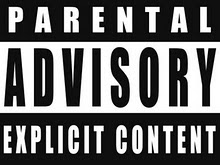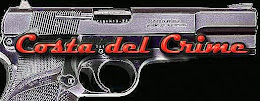Frank "Lefty" Rosenthal died in Florida on Monday
Thursday, 16 October 2008
00:25
,
0 Comments
Labels: Nevada's Black Book of persons excluded from casinos
Labels: Nevada's Black Book of persons excluded from casinos
Frank "Lefty" Rosenthal died in Florida on Monday at age 79, according to family members and a source at his high-rise condominium complex in Miami Beach.Rosenthal was a minor celebrity confined to the world of gambling, organized crime and Las Vegas society until the 1995 movie "Casino," which was based on his life story, propelled him to a much higher level of fame.Rosenthal's passing marks the close of yet another chapter in the transformation of Las Vegas from a gambling destination of ill-repute to a global destination celebrated by everyday tourists, politicians and corporate leaders who invest billions of dollars in resorts."He was the innovator and creator of what we know today as the race and sports book in Las Vegas with all the modern accoutrements," said Las Vegas Mayor Oscar Goodman, a former attorney who represented Rosenthal in high-profile scrapes with Nevada regulators, including now-Sen. Harry Reid. "He was an uncanny bettor and won a lot more than he lost."Goodman painted Rosenthal as the type of boss who represented the best of Las Vegas, in terms of how to run a good casino."He was the kind of guy who, when working in the casino industry, would see a cigarette butt on the floor, pick it up himself and dispose of it," Goodman said. "And then he'd fire the employee whose job was to have picked it up in the first place."Rosenthal was also a controversial figure whose life story was entwined with the emergence of Las Vegas as a destination for money mobsters sought to launder through legal casinos.His childhood was spent learning the gambling trade through illegal bookmaking operations run by organized crime figures from the Midwest. He made connections that fueled his rise and instigated his downfall later in Las Vegas.Rosenthal was born June 12, 1929, in Chicago and spent the 1930s in Chicago. When he arrived in Nevada in 1968, he discovered that gambling could not only be profitable but a ticket to prominence in a place where his occupation was the subject of reverence, not scorn."When I was a kid growing up in Chicago, if you walked around with a ... card in your hand, you were subject to be arrested or harassed, at least," Rosenthal said in 1997 during an interview with the PBS program "Frontline." "On the other hand, if you want to go to Las Vegas, Nevada, you can do the same thing and be quite respectable."The word "respectable" was a loaded phrase when it came to Rosenthal.When he moved to Las Vegas, he had already gained some level of notoriety for an appearance in 1961 before a Senate hearing on gambling and organized crime during which he invoked Fifth Amendment protection against self-incrimination 38 times.An indictment in California in 1971 for conspiracy in interstate transportation in aid of racketeering helped prevent the bookmaker Rosenthal from getting a Nevada gaming license, a situation that angered him for years after he left Las Vegas. A 1963 conviction stemming from an attempt to bribe college basketball players later landed him on a short list of people excluded from Nevada casinos.But lack of a license didn't stop him from holding sway over operations at the Stardust, Hacienda, Fremont and Marina casinos when they were owned or controlled by the Argent Corp., and financier Allen Glick. Glick was the purported front man for Midwestern mob bosses who controlled the casinos through Argent, which was funded in part through loans from the Teamsters union. During an interview with a magazine reporter in 1975, the unlicensed Rosenthal landed himself in hot water with regulators when he said, "Glick is the financial end, but the policy comes from my office."Rosenthal's problems were exacerbated by personal and business connections to reputed mobster Tony Spilotro.Spilotro wound up being indicted in a skimming scheme, along with about 14 others, which also sealed Rosenthal's fate with gaming regulators, who ended up putting both men in Nevada's Black Book of persons excluded from casinos.
Spilotro also wound up having an affair with Rosenthal's estranged wife, Geri, a situation law enforcement authorities later claimed as evidence Spilatro tried to kill Rosenthal."Obviously there were things going on," Rosenthal told the Fort Lauderdale (Fla) Sun-Sentinel in 1995. "There are more tricks in the trade than I can ever describe to you. But I think some of it (the federal inquiry) was exaggerated."Later in the Sun-Sentinel story, Rosenthal acknowledged there was little chance he could escape the notorious shadow of Spilatro."In retrospect, his reputation and the fact that we were boyhood friends -- there was no way for me to overcome it," Rosenthal told the newspaper.
Spilotro also wound up having an affair with Rosenthal's estranged wife, Geri, a situation law enforcement authorities later claimed as evidence Spilatro tried to kill Rosenthal."Obviously there were things going on," Rosenthal told the Fort Lauderdale (Fla) Sun-Sentinel in 1995. "There are more tricks in the trade than I can ever describe to you. But I think some of it (the federal inquiry) was exaggerated."Later in the Sun-Sentinel story, Rosenthal acknowledged there was little chance he could escape the notorious shadow of Spilatro."In retrospect, his reputation and the fact that we were boyhood friends -- there was no way for me to overcome it," Rosenthal told the newspaper.









0 Response to "Frank "Lefty" Rosenthal died in Florida on Monday"
Post a Comment
Note: only a member of this blog may post a comment.